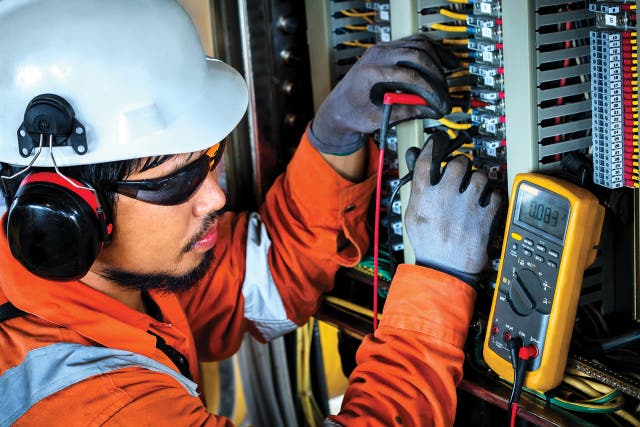This site uses cookies to store information on your computer. Some are essential to make our site work; others help us improve the user experience or allow us to effectively communicate with you. By using the site, you consent to the placement of these cookies. Read our cookie policy to learn more.
The Introduction to NFPA 70E online safety course addresses the importance of electrical safety in the workplace. Participants can expect to learn about the National Fire Protection Association (NFPA) and why the NFPA 70E was developed. This intermediate-level course covers electric shock and arc flash hazards, approach boundaries, and risk assessments, as well as warning labels, and personal protective equipment (PPE).
Participants will be introduced to NFPA 70E and the hazards involved with electrical dissemination systems with currents greater than 50 volts.
Choose the right version for you: ClickSafety offers multiple versions of this course. Please check the requirements of your employer and/or state to select the appropriate version:
2018 Edition: Several significant changes were made in the 2018 edition, including:
- Updates to the process of creating appropriate risk assessments, including emergency action plans and job tasks.
- Increased emphasis on the use of the hierarchy of risk controls when evaluating and implementing controls
- Step-by-step guidelines in Article 120 for establishing an electrically safe workplace
- Modifications to the arc flash hazard identification table to make it available to both incident energy analysis and PPE category methods for determining the likelihood of an arc flash
2021 Edition: Several significant changes were made in the 2021 edition, including:
- Revisions to help estimate the likelihood of an arc flash incident during initial energization of new equipment.
- Energy thresholds for electrical equipment and systems in laboratories, reflecting the data in the Informational Note’s resource document.
- New article on the safety-related requirements for capacitors.
- Article 110 now incorporates the general requirements that were previously in other articles.
- New subsection requires that an employer’s electrical safety program include a policy on establishing electrically safe work conditions.
- New table for rubber insulating gloves was added as well as requirements for arc rated outerwear such as high visibility vests.
2021 Edition w/ Voice Authentication: This course uses Voice Authentication, a requirement in certain states to meet online course proctoring requirements. These voice-authenticated courses represent a best practice to ensure the identity of the student by prompting users to periodically verify their voice throughout the course. Users must have access to a mobile phone or landline while taking the course to successfully meet this requirement.
The Introduction to NFPA 70E course is ideal for all those who may work around potential electrical hazards. Applicable for all industries, the following will specifically benefit from this course:
- Electrical workers
- Supervisors
- Managers
- Leads or key workers – including workers whose exposure may not be a part of the individual’s regular job responsibilities
If you have any concerns as to whether this course is appropriate for you or your industry, please browse our full selection of Online Courses and Safety Packs, call 800-971-1080, or Contact Us online.
ClickSafety’s Introduction to NFPA 70E is an intermediate online safety course for those potentially exposed to the hazards of electrical work. Upon successful completion of this course, participants can expect to:
- Know the history and purpose of the NFPA and the NFPA 70E standard
- Identify responsibilities and training requirements for qualified and unqualified persons
- Understand how to achieve electrically safe work conditions through an effective safety program
- Identify safeguards and controls for work involving electrical hazards, including the use of PPE, labels, warnings, and barricades
- Identify employer and contractor responsibilities as required by the NFPA 70E
- It was great
Posted on
- Good
Posted on




